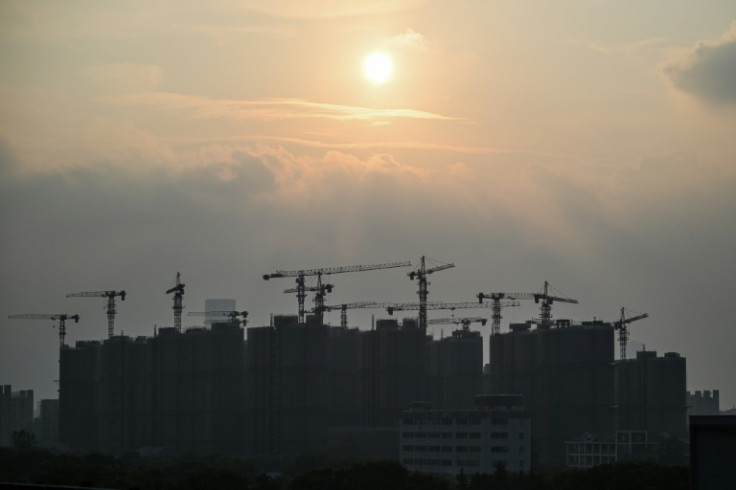China To Flesh Out Economic Stimulus Plans After Bumper Rally

Top Chinese economic policymakers are expected to flesh out a raft of growth-boosting policies on Tuesday, after the announcement of long-awaited stimulus measures last month sparked a blistering stock market rally.
Beijing has struggled to kickstart the economy as officials target around five percent growth this year -- a goal analysts say is optimistic given the numerous headwinds, from a prolonged housing crisis to sluggish consumption.
After months of piecemeal tinkering did little to reverse the malaise, officials have unveiled a raft of measures from rate cuts to loosening house buying curbs aimed at getting money flowing again.
Hopes of that long-awaited "bazooka stimulus" have lit up stock markets, sending bourses in mainland China and Hong Kong surging more than 20 percent.
And with all eyes on the reopening of mainland markets following the Golden Week public holiday, officials from the National Development and Reform Commission will hold a news briefing at 10 am (0200 GMT) Tuesday.
Chairman Zheng Shanjie and others will discuss the rollout of "a package of incremental policies to solidly promote economic growth", Beijing has said.
Analysts said they hoped officials would unveil further fiscal support measures such as trillions of yuan in bond issuances and policies to boost consumption.
But they cautioned that deep reforms to the economic system to relieve the debt crisis in the property sector and boost domestic demand are needed if Beijing is serious about resolving the fundamental obstacles to growth.
"Unless China introduces structural reforms to really jumpstart consumption -- from unemployment benefits to real pensions -- I just don't think that we will see a major change," said Alicia Garcia Herrero, chief economist for the Asia-Pacific region at Natixis.
The market rally risked becoming a "mirage", she warned, as policymakers propped up stocks without properly tackling the underlying issues in the real economy.
"If the measures are not proven to be effective... it will be even worse, because it means that not even the stimulus works," she said.
Hong Kong's benchmark Hang Seng Index closed up 1.6 percent on Monday, while mainland markets reopen Tuesday after a surge led by technology and property firms was interrupted by the public holiday.
Many of the measures unveiled so far have been aimed at the flagging housing market, long a key driver of growth but now mired in a prolonged debt crisis exemplified by the fates of developers like Evergrande.
To that end, Beijing's central bank has slashed interest for one-year loans to financial institutions, cut the amount of cash lenders must keep on hand, and pushed to lower rates on existing mortgages.
Several cities -- including the financial crucibles of Shanghai, Guangzhou and Shenzhen -- have also further eased restrictions on buying homes.
Gene Ma, the head of China research at the Institute of International Finance, said the market reaction to stimulus was "totally normal".
But, he warned, "sustained economic recovery and reflation require more forceful demand-side fiscal stimuli".
© Copyright AFP 2025. All rights reserved.





















